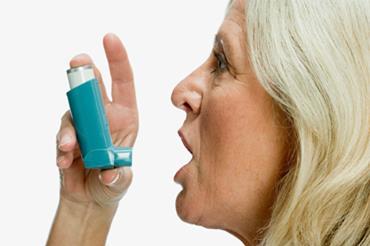Proactively identifying patients who were poorly controlled with asthma, COPD and breathlessness won Portsmouth Hospitals Trust the 2019 HSJ award for Acute Sector Innovation. Jennifer Trueland reports

Portsmouth Hospitals Trust has revolutionised diagnosis and management of patients with common respiratory conditions, improving clinical outcomes and drastically reducing demand on secondary care.
Working with Wessex Academic Health and Science Network and South East Hampshire Vanguard, the trust used the practice registries at 10 large GP practices to identify patients deemed at risk of asthma, COPD, or breathlessness.
Patients were then invited to attend rapid, one-stop “carousel” clinics at their GP surgery, but run by integrated primary and secondary care teams. The 482 who attended had their diagnosis reviewed, lung function assessed, comorbidities identified, medication reviewed, were followed up as necessary, and received advice on self-management.
“It was about flipping the whole way that the NHS works on its head,” says Jayne Longstaff, lead respiratory quality improvement nurse at Portsmouth Hospitals Trust. “The way the NHS currently works is very reactive, in that we wait for patients to come to us before we do anything. This was more proactive, so we were identifying patients who were poorly controlled with asthma, COPD and breathlessness. The idea was to reduce the time to diagnosis for people who were poorly controlled with their disease.”
Early diagnosis
Before the project, patients took approximately two years from the time of noticing symptoms to getting properly diagnosed – suffering exacerbations and heavily using both scheduled and unscheduled care in the process, often with repeated visits to secondary care. “We wanted to condense that down into a period of a month,” she adds. “Within that month they had absolutely everything [in terms of tests] and the outcomes are shown across health services utilisation and so on.”
Certainly the reduction in the use of unscheduled care was stunning: compared to the previous 12 months, unscheduled GP attendances fell by 63 per cent; exacerbations by 55 per cent; and use of out of hours services by 88 per cent. Emergency department visits fell by 68 per cent and hospital admissions by 79 per cent.
Being brilliant isn’t the only thing in town – you have to be able to think clearly about what you’re trying to do and communicate that, both to your team and externally
The project required wholehearted buy-in from stakeholders including GP practices, she says, and also good communication with patients who – having been proactively identified – were sometimes hesitant because they didn’t actually know why they were being invited to take part.
Patient engagement was excellent, however, with 94 per cent attending the clinics when asked. Almost all (96 per cent) said in feedback that they were satisfied with all aspects of the service and would recommend it to family and friends.
The project, called Modern Innovative SolutionS to Improve Outcomes iN Asthma, Breathlessness and COPD (MISSION ABC), was the winner in the HSJ Awards Acute Sector Innovations category, and has already attracted attention from health services both locally and nationally. There is also a bundle of resources available on the MISSIONabc website for other areas wanting to take it up
“I’m really pleased that we’re now running it as business as usual, which is great news,” says Ms Longstaff. “It’s good that other areas want to do it too.”
“We entered the HSJ award because it’s recognition for the team for all their hard work, but the main thing is having that national recognition that says the project is good, and that it does work, and we’re doing a great job. Having that recognition is phenomenal – it’s a kind of rubber-stamping that says this project works and is worth investing in.”
For Ed Will, head of marketing and communications with category sponsor Healthcare at Home, who was on the judging panel, said that clarity of message was something that stood out for him in the Portsmouth entry.
“They had a clear idea, they had to pull in multiple stakeholders, so they had to energise different pods of people who all have their day jobs, so they had to have a powerful message that was quick to communicate to other people so they could see what they were trying to do, and be prepared to get involved.”
It was a privilege to be involved in the judging process, he adds. “Seeing the submissions, you get a real sense of the rhythm and patterns, of what is high interest to the NHS. You realise that there are common themes that people are worried about and they’re creating different solutions.
“But what also became clear is that the winning submissions paid attention to communicating what it was that they were trying to do. Being brilliant isn’t the only thing in town – you have to be able to think clearly about what you’re trying to do and communicate that, both to your team and externally.”
Click here to find out more about how to enter the HSJ Awards 2020






















